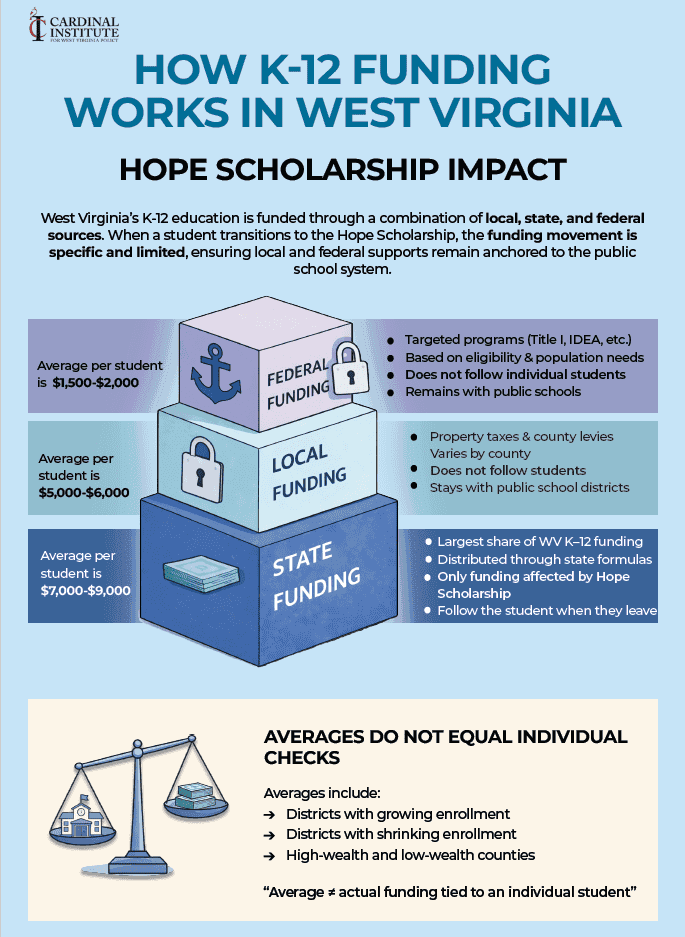
Free Speech Imperiled by Campus Speech Codes in West Virginia
Cardinal Team
New Research Highlights Free Speech Violations on WV Campuses
An analysis of speech restrictions at West Virginia’s four-year colleges and universities has shown widespread violations of free speech. The Foundation for Individual Rights and Expression (FIRE), where I worked for five years, found close to 100 policies restricting students’ fundamental rights.
Legal Requirements for Public Colleges & Universities
Courts in the United States have been clear, time after time, that public colleges and universities must follow the First Amendment. The review of cases in the Supreme Court’s opinion in Healy v. James was good in 1972, and case after case has reaffirmed these principles:
[S]tate colleges and universities are not enclaves immune from the sweep of the First Amendment. “It can hardly be argued that either students or teachers shed their constitutional rights to freedom of speech or expression at the schoolhouse gate.” Tinker v. Des Moines Independent School District, 393 U. S. 503, 506 (1969). … [T]he precedents of this Court leave no room for the view that, because of the acknowledged need for order, First Amendment protections should apply with less force on college campuses than in the community at large. Quite to the contrary, “[t]he vigilant protection of constitutional freedoms is nowhere more vital than in the community of American schools.” Shelton v. Tucker, 364 U. S. 479, 487 (1960). The college classroom with its surrounding environs is peculiarly the “‘marketplace of ideas,’” and we break no new constitutional ground in reaffirming this Nation’s dedication to safeguarding academic freedom. Keyishian v. Board of Regents, 385 U. S. 589, 603 (1967); Sweezy v. New Hampshire, 354 U. S. 234, 249-250 (1957) (plurality opinion of Mr. Chief Justice Warren), 262 (Frankfurter, J., concurring in result). [Emphases added.]
The West Virginia Constitution also promises free expression across the state. Article III declares:
No law abridging the freedom of speech, or of the press, shall be passed; but the Legislature may, by suitable penalties, restrain the publication or sale of obscene books, papers, or pictures, and provide for the punishment of libel, and defamation of character …
Free Speech Violations Are Rampant
Nevertheless, FIRE found close to 100 speech codes—policies that restrict guarantees of freedom of speech—at 17 public and private four-year colleges and universities in West Virginia.
Public colleges must remedy these speech codes or else face expensive, embarrassing lawsuits and the potential to lose federal education funding, as noted in the report. Private universities are allowed to place other values above free speech. However, the vast majority of private colleges explicitly promise free speech, induce students to attend on the basis of such promises, and face liability (as well as the loss of federal education funding if they lose in court) when they violate those promises. That’s why we included speech codes at private colleges in the report. Furthermore, violating free inquiry and free expression usually violates the heart of a university’s mission.
During the writing of this report with FIRE’s Laura Beltz and the Martin Center’s Jenna Robinson, West Virginia University remedied most of the policies that contradicted WVU’s longstanding commitment to free speech. So, the current number of speech codes in West Virginia is now in the low 90s.
The report contains many examples, so I will let readers thumb through them there.
Opportunities to Fix Campus Speech Codes
Certainly, higher education institutions that value free speech will want to rectify any violations. I know FIRE would be delighted to work on compliance with each institution, and so would I. I will happily share the full list of violations with each college so as to help remedy them. In North Carolina, after a similar report, 15 institutions became fully compliant. That is more than two-thirds of the state’s institutions rated by FIRE.
Another key thing that should happen soon: Senate Bill 657 requires:
Each [public] campus shall report to the Higher Education Policy Commission [HEPC] … a description of any barriers to, or incidents of disruption of, free expression occurring on campus … Annually, by August 1, the commission … shall report to the Legislative Oversight Commission on Education Accountability [LOCEA] any barriers or incidents reported to them …
All of the speech codes from the public institutions in this report ought to be reported to HEPC and LOCEA. This will alert our legislature to the true state of free speech, at least from a policy perspective, for West Virginia’s college students.
The report recommends additional valuable steps for various individuals and groups, so please read the report.
Adam Kissel is a Senior Fellow for the Cardinal Institute for West Virginia Policy and a Visiting Fellow in Higher Education Reform at the Heritage Foundation.







